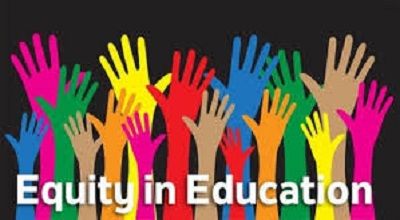Equity in Education
“Equity in education” refers to the concept of ensuring that all students have access to the same opportunities. Resources, and support regardless of their background, socioeconomic status, race, gender, or other factors. It aims to eliminate disparities in educational outcomes and experiences, providing each student with a fair chance to succeed.
Key components of equity in education include:
- Access to Quality Education: Every student should have access to a high-quality education. Which includes well-qualified teachers, up-to-date resources, and a safe learning environment.
- Fair Distribution of Resources: Schools and educational institutions should receive adequate funding. Resources to provide students with the tools and opportunities they need to learn and excel. This includes funding for technology, extracurricular activities, and support services.
- Inclusive Practices: Equity involves creating inclusive learning environments that value diversity and accommodate different learning styles and needs. This includes addressing language barriers, disabilities, and other factors that may affect a student’s ability to learn.
- Elimination of Bias and Discrimination: Efforts should be made to eliminate bias and discrimination in educational settings. This includes addressing issues related to race, gender, socioeconomic status, and other factors that may contribute to unequal treatment.
Read more Key Components…
- Equitable Policies: Educational policies should be designed to promote equity, addressing systemic issues that contribute to disparities in educational outcomes. This may involve changes at the local, regional, or national levels.
- Parental and Community Involvement: To achieve equity in education, it is crucial to involve parents, caregivers, and communities in the educational process. Collaboration between schools and communities can help address specific needs and challenges faced by students.
- Data Collection and Analysis: Schools and educational institutions should collect and analyze data to identify disparities in educational outcomes. This information can guide targeted interventions and policies to address specific challenges faced by different groups of students..
Benefits of Equity in Education
Promoting equity in education offers numerous benefits that extend beyond individual students to positively impact communities and society as a whole. Here are some key advantages:
- Improved Academic Achievement: When educational opportunities are distributed equitably, students from all backgrounds are more likely to receive the support and resources they need to succeed academically. This can lead to higher levels of achievement and better educational outcomes overall.
- Enhanced Social and Emotional Well-being: Equity in education fosters a positive and inclusive school environment. Students who feel valued and supported are more likely to experience positive social and emotional well-being, leading to improved mental health and a sense of belonging.
- Reduced Achievement Gaps: Addressing disparities in educational resources and opportunities helps close achievement gaps between different groups of students, such as those based on socioeconomic status, race, or gender. This ensures that all students have a more equal chance of reaching their full potential.
- Increased Economic Mobility: Education is a key driver of economic mobility. When all students have access to quality education, regardless of their background, it can contribute to breaking the cycle of poverty and opening up more opportunities for economic advancement.
- Social Cohesion and Inclusion: Equity in education promotes social cohesion by fostering a sense of fairness and inclusivity. Students who perceive the educational system as fair are more likely to participate positively in society, contributing to a more cohesive and harmonious community.
More Benefits…
- Workforce Diversity and Innovation: A more equitable education system can lead to a diverse and skilled workforce. Diverse perspectives and backgrounds contribute to innovation and creativity, as individuals bring unique insights and experiences to problem-solving and decision-making.
- Long-term Societal Benefits: Addressing educational inequities can have a ripple effect on various social issues. Including crime rates, health outcomes, and civic engagement. A well-educated population is more likely to contribute positively to society and participate in civic activities.
- Global Competitiveness: Nations that prioritize equity in education are likely to produce a more skilled and adaptable workforce, increasing their global competitiveness. This is crucial in a rapidly changing world where knowledge and innovation are key drivers of economic success.
- Increased Access to Higher Education: Equity in education can improve access to higher education for historically marginalized groups. Breaking down barriers and expanding opportunities for individuals to pursue advanced degrees and professional careers.
- Social Justice and Equity Values: Equity in education aligns with principles of social justice and equity. Reinforcing societal values of fairness, equal opportunity, and respect for diversity.
Summary
Achieving equity in education is a complex and ongoing process that requires the collaboration of educators. Policymakers, communities, and other stakeholders. The goal is to create an educational system that provides all students with the support and opportunities. They need to reach their full potential, regardless of their background or circumstances
By striving for equity in education, societies can create a more just and inclusive future. Where each individual has the opportunity to develop their full potential and contribute meaningfully to society.
